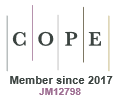Family revision and cladistic analysis of the Nereidoidea (Polychaeta : Phyllodocida)
CJ Glasby
Invertebrate Taxonomy
7(6) 1551 - 1573
Published: 1993
Abstract
A family revision and cladistic analysis of the superfamily Nereidoidea sensu George and Hartmann - Schroder, 1985 (Polychaeta : Phyllodocida) based on internal and external morphological characters is presented. The superfamily, presently lacking synapomorphies, contains the Antonbruunidae, Calamyzidae, Hesionidae, Levidoridae, Nautiliniellidae, Nereididae, Pilargidae and Syllidae. Three synapomorphies are proposed: anterior or, rarely, anteroventral palps; paired pharyngeal retractor muscles; and the presence of metanephromixia. On the basis of this definition, the Chrysopetalidae are moved to the Nereidoidea. The requirement for ingroup monophyly necessitated synonymising the Antonbruunidae with the Pilargidae, and the Calamyzidae and Levidoridae with the Syllidae. The Nautiliniellidae are redefined. The cladistic analysis using 15 characters (21 apomorphic character states) and 3 outgroups (Aphroditidae, Polynoidae, and Sigalionidae) produced 3 minimum-length cladograms each with 29 steps and consistency index of 0.72. The cladograms showed the Nereidoidea to consist of 2 monophyletic groups: the Nereididae - (Chrysopetalidae - Hesionidae) and the Pilargidae - Nautiliniellidae - Syllidae. The topology of the latter group was variable; one cladogram had the Pilargidae as the sister-group of the Nautiliniellidae and Syllidae, and another had the Syllidae as the sister-group of the Nautiliniellidae and the Pilargidae. Evolutionary scenarios for multistate characters are given, and the phylogenetic relationships of taxa are discussed.https://doi.org/10.1071/IT9931551
© CSIRO 1993


